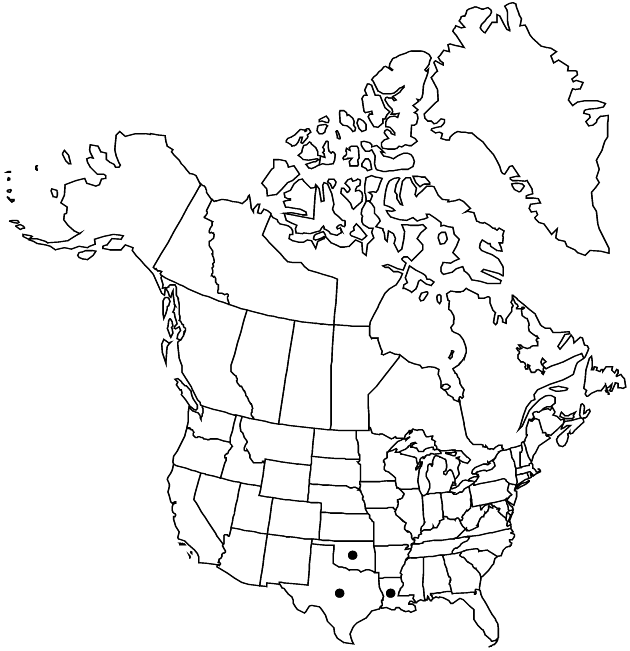Krigia cespitosa var. gracilis
Sida 21: 227. 2004.
Common names: Texas dwarfdandelion
Endemic
Basionym: Apogon gracilis de Candolle in A. P. de Candolle and A. L. P. P. de Candolle, Prodr. 7: 79. 1838
Synonyms: Krigia gracilis (de Candolle) Shinners
Treatment appears in FNA Volume 19. Treatment on page 367.
Revision as of 19:53, 5 November 2020 by imported>Volume Importer
Involucres 4.5–7 mm in flower, 5.5–8.5 mm in fruit. Ligules 6.5–11 mm. 2n = 8.
Phenology: Flowering Apr–Jul.
Habitat: Moist clay and sandy soils, pastures, fields, roadsides, and borders of oak-hickory-pine woods and oak savanna, sometimes in disturbed areas
Elevation: 50–300 m
Distribution

La., Okla., Tex.
Discussion
Variety gracilis is known principally from tallgrass prairie and mixedgrass prairie biomes. It was formerly recognized as a species. It was reduced to the rank of forma by K. J. Kim and B. L. Turner (1992), who could find no molecular differences between it and forma cespitosa in their cpDNA and rDNA studies (Kim and T. J. Mabry 1991; Kim et al. 1992b, 1992c). The cypsela morphology and chromosome number are identical; the difference in size of the heads and floral parts is well marked, even in areas of sympatry, except for evidently hybrid plants of intermediate morphology.
Selected References
None.
Lower Taxa
None.